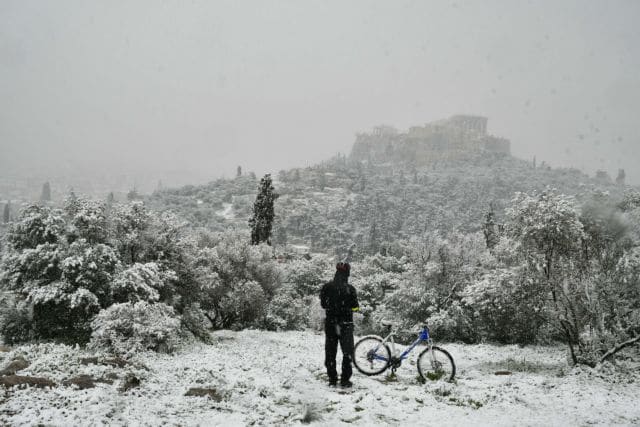The Professor of Physical Atmosphere, and General Secretary of the Academy of Athens Christos Zerefos spoke to MEGA, regarding the extreme weather phenomena that "hit" the country, and the disasters left behind by the bad weather Elpida.
"There are people who say that these are by nature. The frequency of occurrence of the phenomena that increases, and their intensity, which also increases, is not accidental. It is done in a few decades. Climate change is here, it is with us, we must learn to live with it. "We learn gradually, as small children do," said Mr. Zerefos.
"The snowstorm is a bad weather that happened every 40-50 years, now it will happen more often, so it is good to start adapting to these new situations. Take precaution, with prevention. We are in the phase where when the experts warn us that there will be a great disturbance in the atmosphere, we take the appropriate measures. There are salt shakers, a fleet of bulldozers that open the roads, the movement of trucks is prohibited, as was done in EO. "Attiki Odos was just unlucky", he continued, adding that "I doubt if Attiki Odos has machines to deal with such phenomena".
No salt was thrown on Attiki Odos
"There is a coordinating body everywhere, as we have, that works in harmony with all other services such as the region and the municipalities, and there must be the means available to protect the streets and the residents. That's why it became the Ministry of Climate Crisis, which aims to sort out this big gap in simple situations. Here the situation is more complicated, it is a rare phenomenon and it happened in the most densely populated part of Greece. Salt is a key element in melting ice on the roads. "They had not thrown salt on Attiki Odos, and so many people were trapped", Mr. Zerefos explained.
"The weather lockdown was indirectly imposed, it just was not imposed on some arteries that were very vulnerable, I think because there was no timely information about the intensity of the snowfall which was amazing," the professor concluded.
in.gr
